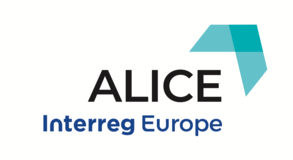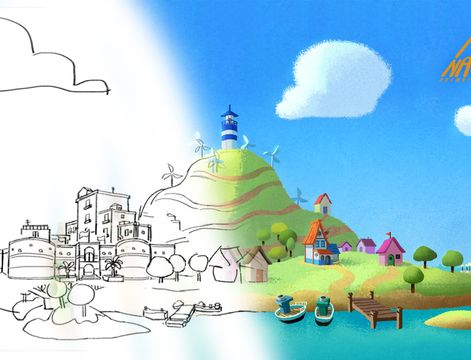At the last ALICE partners' meeting held on 1 July in Barcelona, the opportunity was given not only to review the policy changes that the programme has induced, but also the future actions that could be undertaken in the long term and in a sustainable manner.
The changes made to the policy instruments follow the broad lines of the working groups that were set up within ALICE.
Thus, the Region of Puglia confirmed that the Apulia film fund, which was created at the instigation of the exchanges that took place both between the ALICE partners and its stakeholders, has been able to finance two projects and that the action will continue in the future.
Another major development that ALICE has initiated is the creation of the Apulia Short & Digital Production Fund, of which a first beneficiary producer has been identified and two others are yet to be found.
These productions and the future ones will generate direct and indirect benefits to the Apulian territory: In the first place, the valorisation of local professionals and secondly, the financial support to the animation sector in Puglia, whose operators clearly expressed a need for more funding on behalf of Puglia Region. Finally, another aspect to take into account is the general development of the animation sector, which now, for the first time in Puglia, has its ad-hoc funds.
In the same field of financing, the announcement made by Wallimage at the last MIFA in Annecy, the world's largest animation market, that its development fund would be open to international co-productions in the field of animation is in line with the Wonderland of animation advocated by ALICE in its Whitepaper, which encourages collaboration between territories through the implementation of common financing mechanisms.
The impulse given by the consultation of ALICE members by the Polish partner, Rzeszow Regional Development Agency, on the preparation of the Regional Innovation Strategy of the Podkarpackie Voivodeship for the years 2021-2030 played a key role in its drafting.
For the first time, the formulation of this policy instrument includes references to animation and gaming.
More specifically, a point concerning the smart specialisations of the Podkarpackie Region indicates the relevance for the development of the region's economy of the use of augmented reality techniques and animation. This policy instrument opens the door to future calls for grants to operators in the field of audiovisual and in particular animation.
With regard to the results inherent to the work of ALICE, it is undeniable that the mapping methodology developed by ProA (Audiovisual Producers Federation - ESP) will provide the authorities with an instrument that will allow them to better design future policies in favour of the animation sector. This will be the case in Catalonia where ProA has started a mapping of the production sector on behalf of the ICEC (Catalan Institute of Cultural Industries). For its part, SPPA (the Polish Animation Producers Association) is also carrying out a mapping of the sector in Poland in close collaboration with the authorities.
A similar work has been initiated by the Ministry of Culture of Slovakia by creating an online database of animation professionals.
Finally, Pictanovo, the regional audiovisual fund from Hauts-de-France, has started a similar work by drawing up a questionnaire on the operating rules of the European regional funds to which the members of ALICE have replied and which is now being circulated at the level of Cine-Regio, the network of regional film funds in Europe.
There is no doubt that this work, once published and disseminated, will inspire other regions to undertake similar work.
The mapping is closely linked to the setting up of a Smart Directory, a dynamic database that will make it possible to map the skills on European territories in order to facilitate co-productions.
An operator to carry out the project has been identified by Wallimage (BE) and the search for funding has begun. The result of this fundraising, which has been initiated not only among ALICE partners but also more widely, will be known by the end of the year.
Thanks to the work of the Training & Entrepreneurship working group, the Polish SPPA has succeeded in including the profession of animator in the nomenclature of recognised professions. This is an essential step which is far from being prevalent in all European countries. It should eventually lead to the establishment of training certifications for animation professionals at European level.














